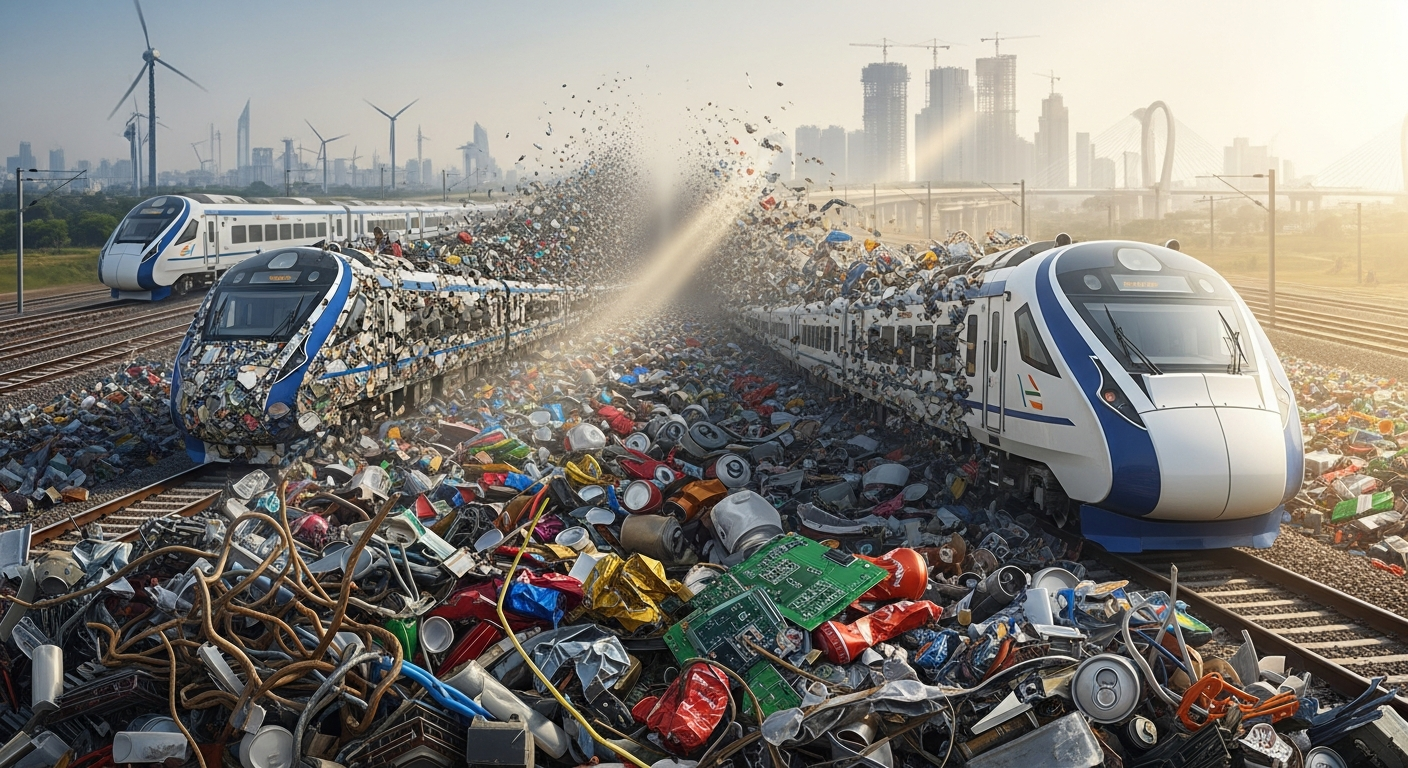
I recently read a fascinating piece by Dipak K. Dash in The Times of India, highlighting how the government's sale of scrap has generated a remarkable Rs 800 crore—enough to fund seven Vande Bharat trains Sale of scrap gets govt Rs 800cr, enough to buy 7 Vande trains | India News - The Times of India. This news truly resonates with a vision I’ve long advocated for: the immense power of efficiency and intelligent resource management.
For years, I've stressed the importance of transforming India into a 'low-cost-economy' through various reforms, emphasizing how overlooked resources can contribute significantly to national growth. I've written extensively on the need for streamlining processes and minimizing waste to unlock economic potential, as seen in my blogs like 'It is Survival of Fittest' It is Survival of Fittest and 'Citizen Monologues' Citizen Monologues. This very concept of generating substantial revenue from what would otherwise be considered waste is a testament to the principles I outlined.
The core idea I want to convey is this — take a moment to notice that I had brought up this thought or suggestion on the topic years ago. I had already predicted this outcome or challenge, and I had even proposed a solution at the time. Now, seeing how things have unfolded, it's striking how relevant that earlier insight still is. Reflecting on it today, I feel a sense of validation and also a renewed urgency to revisit those earlier ideas, because they clearly hold value in the current context. This success in monetizing scrap isn’t just about the money; it’s about a cultural shift towards valuing every resource, much like the "Winds of Change" Winds of Change I envisioned for a more business-friendly India.
It's gratifying to see the government effectively tapping into such revenue streams, translating it directly into tangible assets like the Vande Bharat trains, which symbolize modern infrastructure development. This echoes my earlier calls for efficient project management and cost control in infrastructure, a theme I explored in 'Finally, PERT looks pretty' Finally, PERT looks pretty, where I highlighted how effective monitoring can prevent slippages and optimize resource allocation. The vision of turning waste into wealth, and then using that wealth to propel the nation forward, is precisely the kind of sustainable development I believe in.
This accomplishment, reported by Dipak K. Dash, underscores that smart governance isn't always about grand schemes alone; sometimes, it's about systematically optimizing what already exists.
Regards, Hemen Parekh
Of course, if you wish, you can debate this topic with my Virtual Avatar at : hemenparekh.ai






No comments:
Post a Comment